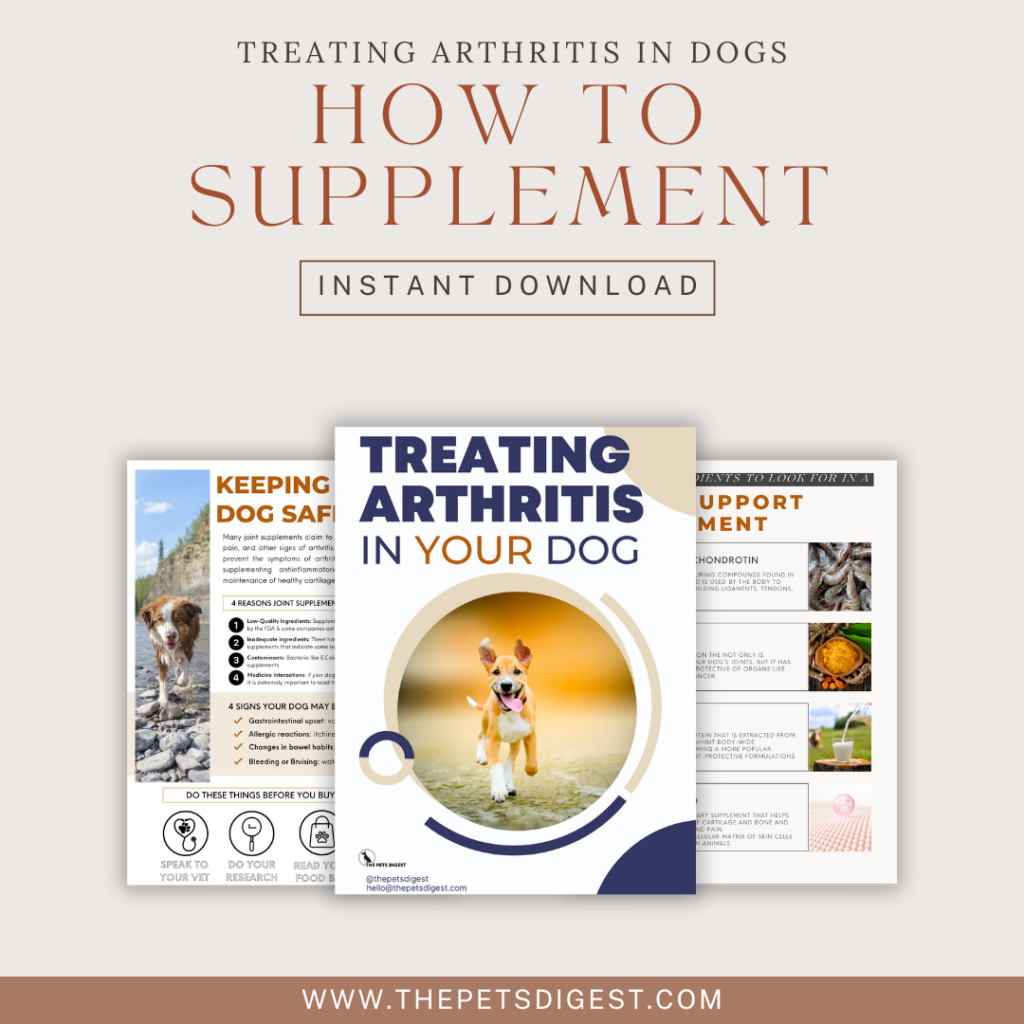If you are feeding your dog a homemade diet or would like to top your dog’s food with healthy options that can help to alleviate some arthritis pain speak with your vet about including the following 10 ingredients.

1. Green Lipped Mussels
Not only are green-lipped mussels high in omega-3 fatty acids they also have one that can not be found in any other source, eicosatetraenoic acid or ETA.
They also contain glycosaminoglycans which is what glucosamine is made of.
It was first noticed that green-lipped mussels may help with joint issues in humans over 50 years ago and they have now found their way into the veterinary community.
In many studies, it has been shown that green-lipped mussels can help to reduce pain and swelling in dogs that suffer from joint issues.
2. Blackcurrant leaf extract
A study done on dogs fed a supplement that included green-lipped mussels, black currant leaf extract, and curcumin showed positive effects in dogs and cats with mild to moderate osteoarthritis (source).
Although this study included other ingredients, blackcurrant leaf extract is high in omega-6 oils, which are beneficial for dogs but should be given minimally and only in relation to the omega-3 fatty acids consumed.

3. Salmon & other fatty fish
Fatty fish like salmon and mackerel is loaded with essential fatty acids like omega-3s which may assist with joint lubrication and has anti-inflammatory properties.
Salmon also has calcium and vitamin D. One study done in dogs with arthritis indicated that many dogs that suffer from joint issues are low in vitamin D
4. Blueberries
Berries like blueberries are great for dogs because they are low on the glycemic index but also have tremendous anti-inflammatory effects.
To discover other fruits that your dog can enjoy safely, read our article here.
5. Vegetables
Veggies like broccoli, spinach, and brussels sprouts are great for dogs in small quantities and include antiinflammatory and antioxidant properties. Make sure you steam them first.
6. Oils
Oils like flax seed, fish oil, coconut oil, and olive oil all have antioxidant and anti-inflammatory capabilities, making them excellent candidates for the fats in your dog’s food if you make their diets homemade.
In fact, olive oil was found to work just as well as ibuprofen in humans with arthritis (source).
Ideally, you don’t want to give these all together or in high quantities and oils like coconut oils are extremely fatty and aren’t good candidates for dogs suffering from pancreatitis or obesity.
7. Apple Cider Vinegar
If your dog will tolerate the taste of apple cider vinegar in their food or water it has been shown to relieve arthritis and joint pain due to its anti-inflammatory.
Dogs can have sensitivities to apple cider vinegar so if you notice any signs of allergies or sensitivities like vomiting, diarrhea, or itchy skin you should discontinue use.
ACV should never be given undiluted and always be mixed with food or water.
It is usually dosed at half a teaspoon per 15 pounds but you should always check with your veterinarian prior to starting your dog on ACV.
8. Herbs & Spices
There are many herbs that are considered anti-inflammatory and great for arthritis in dogs.
Turmeric
Turmeric is a well-known anti-inflammatory because of the compound curcumin. It is also said to have the same effect on pain as many over-the-counter pain relievers. It is rich in antioxidants and has been shown to help reduce inflammation in your dog’s joints.
Because of its high antioxidant properties, turmeric is great for so many of your dog’s needs. To read more about the benefits of turmeric for dogs, including how much to feed, read our latest article on the spice here.
Comfrey
Comfrey is considered safe in moderation but can cause liver damage if consumed in excess due to pyrrolizidine alkaloids which are primarily found in the roots. I would recommend only using comfrey as a last resort and under strict veterinary supervision with regular bloodwork to check hepatic function. Therefore, dogs that have liver disease or issues should not be given comfrey.
However, there are many topical formulations for dogs with arthritis that include comfrey and are perfectly safe. When using a topical ointment that includes comfrey ensure that your dog is not licking it
Rosemary
Rosemary can be found in most dog food on the shelves as it can serve as a preservative. If your dog’s food has rosemary in it, you will want to refrain from giving them more.
In addition, some research has shown that when rosemary is applied topically it can be used to relieve some pain due to arthritis. There are cases where it was said that rosemary extract can trigger seizures in dogs. To read more about this we have a thorough blog article about it here.
9. Sea Cucumbers
While sea cucumbers definitely should not be a staple in your dog’s diet they can be given to help alleviate some arthritic pain.
There are many over-the-counter supplements for dogs with arthritis that include sea cucumber as they are a great source of chondroitin sulfate and have anti-inflammatory effects.
10. Alfalfa
Alfalfa is a natural anti-inflammatory that is safe when given in small quantities to dogs. If given in large amounts it can act as an endocrine disruptor which can lead to some thyroid issues as it contains phytoestrogens. It may be best to simply use supplements that include it in their formulation as there are many currently on the market.
If you decide to use alfalfa sprouts in your dog’s meals always check with your veterinarian before doing so to get the correct amount to include.

References

























































































































